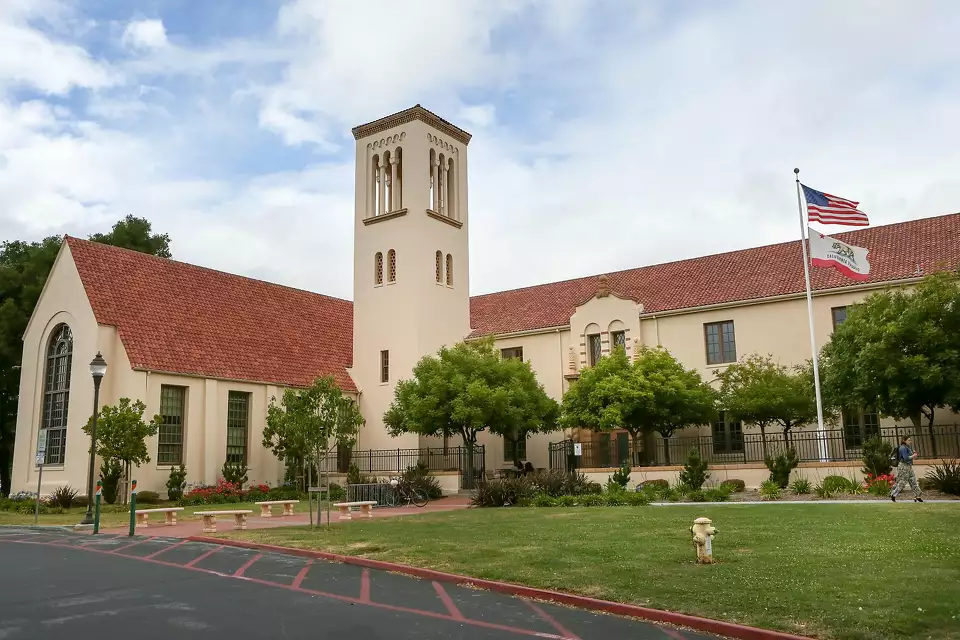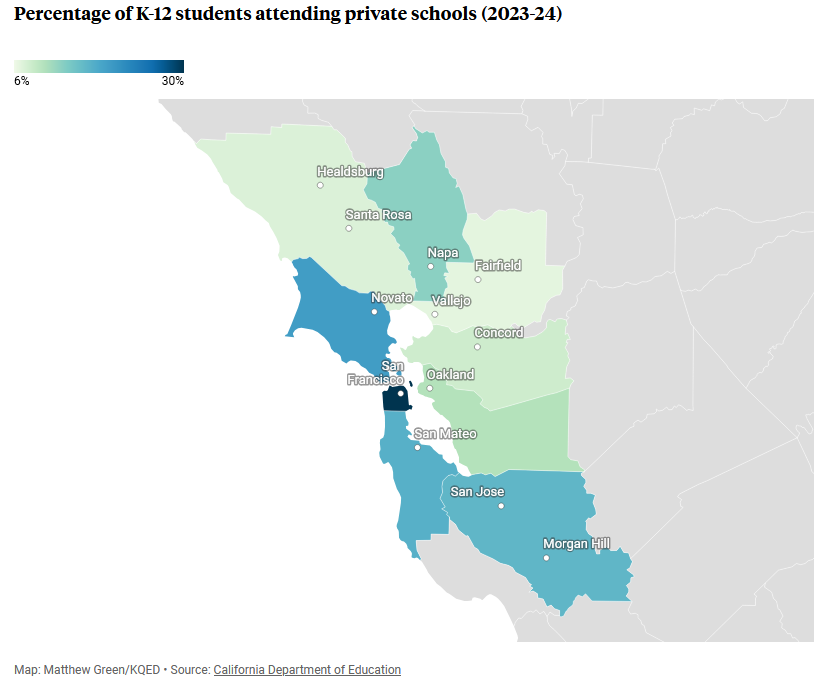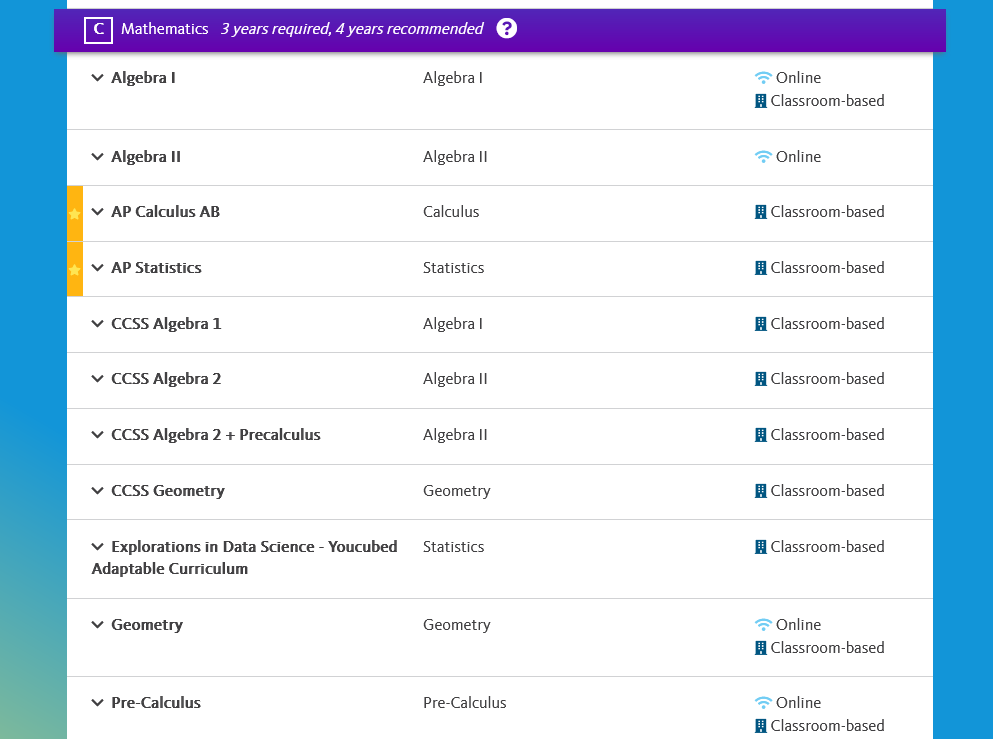
Math Is Really Important
There is no denying the importance of mathematics. It is the language in which science, engineering, and economics are written. STEM fields contain the highest paying jobs, and many of the world’s most important problems are being solved within them. Additionally, the critical thinking and problem-solving developed through mathematical thinking benefits nearly every other facet of one’s life. In spite of all this, I see many Americans brushing math aside. They think they can live fruitful lives without it just because they follow one in a million athletes or actors who pay others to do the math for them.
Furthermore, the United States is not in a great place when it comes to technology: we all recognize the problems in manufacturing and there are significant shortages of skilled STEM workers across the board. In other words, there are jobs out there that pay a lot, are fulfilling, and will help develop the country. The six highest undergraduate majors for mid-career earnings are literally just multiple branches of engineering and computer science. After that, you get math, finance, and physics. Yet there are people out there who are not even willing to give that route a chance. Of course hard technical STEM knowledge isn’t the end-all-be-all. But at the end of the day, the learning you do in STEM will help you with everything else you learn. After all, applying logic and rigorous problem-solving are not unique to STEM.
And no, this isn't elitist. In fact, elitism from some of the people promoting advanced math is probably a big reason why more people aren't completely on their side. I was really infuriated to see the amount of people saying that kids in advanced math are just straight-up better at math than those who aren't. I was also frustrated but not surprised to see parents trying to use it as a way to brag that their kids are smarter. These are absolutely not the attitudes that are going to be winning anyone over.
To put it simply, in a time where the middle class cannot afford homes or groceries, Americans are scared and ignorant when it comes to math, which is a tool that gives people the means to flourish.
Middle School Algebra in San Francisco
California’s Silicon Valley is the world’s premier hub of technology. Surely, a kid who is interested in becoming, say, a physicist, will have the opportunity to get ahead in math so she can start pursuing projects at a younger age? Surely they will let her prepare for the rigors of college math? Well, maybe surprisingly to you if you’re not familiar, the answer isn’t always yes. If she went to school in certain districts several years ago, the answer would have been a guaranteed no. As a matter of fact, in addition to rejection, teachers and some bureaucrats would have discouraged her from doing so. That’s right. Some teachers, who have the responsibility of educating the youth, and education bureaucrats (some of whom are former teachers), would disallow and discourage a curious child from pursuing their dreams.
In 2014, the San Francisco Unified School District (SFUSD), took away the opportunity of middle schoolers to take algebra in middle school. They did this by introducing a new curriculum that required everyone to take the same courses from 8th grade to 10th grade. For reference, SFUSD currently is responsible for around 50,000 students. This is nowhere near one of the largest districts in California, but its significance comes from its proximity to Silicon Valley.
If you’re unfamiliar, the general math sequence looks something like this:
After that, students are able to pursue whatever their school offers. For some, it’s AP Statistics. For some, it’s linear algebra. For some, it’s no more math at all. That being said, that’s a list of four courses. If they have to start in Algebra I as a 9th grader, they won’t get the chance to take AP Calculus.
There are a lot of obvious problems with this, but one that seems to be underrated is how these students are going to look in the eyes of college admissions officers. Students who want to get accepted to elite private universities generally want to have taken AP calculus in high school, regardless of their major. Students who want to get accepted to elite private universities for anything dealing with STEM pretty much *need* it in order to be even considered. Indeed, having AP calculus completed by the time you submit your college application shows that you can handle the rigor of college-level mathematics; this means that completing it as a junior is the latest you should take it, which is why it’s so problematic that many kids weren’t even allowed to take it in high school whatsoever.
And while getting rejected from a school like Stanford for computer science isn’t the end of the world, it’s worrisome that some children aren’t getting the same opportunities in high school as others, and thus have worse chances of getting into their dream schools.
Well what about public universities? There are a handful of very selective public schools that are high ranking when it comes to some of the most selective majors. And public schools tend to prioritize the state they are located in. The University of California, for instance, seems to have some sort of standard when it comes to the number of kids they let in per high school. They control it through either the number of students or percentage accepted, and the actual values are likely dependent on things like income and test scores.
Thus, if an entire school isn’t given access to AP Calculus, it might be okay, right? If one school lacks the resources of others, it’s not like they just reject every single kid? Well, there’s some truth to this idea. Keep in mind that public university systems still have standards and some can be even more strict than private universities when it comes to this type of thing. But the problem isn’t just about college admissions. It’s about how the kids are going to fare after they get accepted. Arriving college freshmen from elite Bay Area high schools could be potentially years ahead of those who did not get the same opportunities they did in math. They are going to have a richer understanding of content, score higher in adjacent courses, get more internships, and go on to get higher paying jobs. What is their reasoning for doing this?
The De-Tracking Movement
“Tracking” refers to the system where students are placed into different levels of math based on their performance in elementary school or early middle school. A very astute kid might score well on his state tests and then get a recommendation from his teacher to jump into Algebra I as a 7th grader. Thus, he’ll take
- Geometry as an 8th grader
- Algebra II as a 9th grader
- AP Calculus as an 11th grader
- Multivariable Calculus as a 12th grader
And that’s great.
For the record, I think we do need to re-evaluate the ways in which kids are accepted into things like advanced math, GATE, and other programs.
But, there was an issue in SFUSD. A significant portion of kids had to retake Algebra I or did not demonstrate proficiency in it. Black and Latino students were struggling disproportionately and were then underrepresented in advanced math classes. They believed certain kids felt dumb for not being in higher level classes and did not want the pressure from parents. Thus, they believed that “heterogeneous classrooms” would be the solution: mix all the students together to let them build off each other. Different experiences and levels of skill would combine, and everyone would move together.
And according to them in the following years, it worked.[1]
SFUSD Used Misleading Data
Unfortunately, the data they used to prove their claim were bad faith. After all, equity is a problem in mathematics and it would be great if the improvements actually came through. One of the primary reasons the data are bad faith is simply the lack of them. Quite a few of their most significant takeaways rely on data that no one has been able to find. And yet, time and time again, they still stand by this “data.”[2]
For instance, one of SFUSD’s goals was to increase the number of students taking higher-level math courses. This means more students actually taking and passing Algebra 2; it also means more students taking “advanced” math which would mean anything beyond Algebra 2. SFUSD claims that 10.4% more students took advanced math than they did previously.[3] This is misleading because their data include compression classes and AP computer science. That means the joint-Algebra 2 and Pre-calculus class counts as advanced math in their eyes despite the fact that the UCs do not consider them to be as such.
Another example is when they claimed that Algebra I proficiency increased and the number of students who had to retake decreased. This is misleading because it’s from a smaller sample size (less students were allowed to actually take Algebra I) and the standards were lowered.
Further offenses include using cherry-picked data from the pandemic to make it look like numbers were going up after and over a thousand students seemingly disappearing from their data. More information about some of the misleading data can be found in this analysis by Families for San Francisco.[6]
What is also problematic is that they have said things like taking AP calculus in high school “generally” does not have “special weight in UC admissions decisions”.[3] This could not be further from the truth. I know this from personal experience, but Berkeley themselves encourages students to take coursework that aligns with their majors.[7] For those who want to pursue STEM, that obviously includes calculus.
Additionally, SFUSD has relied heavily on grades and enrollment numbers (which have been established as misleading much of the time) rather than actual test scores or achievement. Grades are a harmful way of measuring one’s understanding and can often be heavily skewed based on the instructor’s practices. It’s pretty unethical that SFUSD is publishing claims with misleading data and spreading misinformation about college admissions.
So, many of the pros that SFUSD claims are questionable at best. What about the cons?
A System Antithetical to Success
Ethnoracial gaps in achievement still remained from 2015 onwards. Many increases in test scores were minor, and there were even decreases in some places. The amount of students taking AP calculus also dropped.[8]

Yet, in systems where accelerated math is available, minority students have shown persistent academic gains. Brookline High School in Massachusetts has “The Calculus Project”, which showed Black and underprivileged students succeeding in calculus. They believe that students who have been underrepresented in math can flourish if given the chance to do so.[9] Dallas Independent School District also took a similar approach and the same result showed: traditionally underrepresented kids found themselves in more honors classes.[10]
Nobel-prize winning economist David Card and professor Laura Giuliano have put out valuable works suggesting that underprivileged students can benefit from being put into “gifted” classrooms. Indeed, well-established tracking programs could significantly uplift talented students.[11] Rigorous environments that expect high levels of excellence are key.[12] This directly opposes the ideas pushed by SFUSD.
When it comes to the alarming gender gap in STEM, some have suggested that women rate themselves lower when it comes to their mathematical and scientific ability. “Filter” classes (lower division classes that are perceived as too much to handle which causes people to switch majors after taking them) are likely in part responsible for this, such as Calculus I, Calculus II, organic chemistry, and physics. In other words, unpreparedness and other flaws of the education system are costing many people (especially the underprivileged) their dreams of pursuing STEM. And even if they don't drop out, they might find themselves seriously struggling. Anyone can succeed in these courses given the right mindset; It is absolutely ridiculous to think otherwise. And what better way to prepare yourself for the rigor of a course like Calculus II than to take AP Calculus in high school?
De-tracking does not increase equity but rather promotes a system that is antithetical to mathematical success.
California Math Framework
In 2023, California revealed its new California Math Framework (CMF). CMF is supposed to be a sort of set of guidelines on what students should take to meet their math requirements before college. It is supposed to align with the common curriculum.[13][14] Stanford’s Jo Boaler is one of the leading voices in the detracking movement. She has been hugely influential in many of the biggest problems with CMF. For instance, CMF has frequently discouraged acceleration and has encouraged a lot of controversial replacements, the most famous perhaps being data science. It’s not intended to be a set of standards. While data science courses can be important, the content in these classes often does not cover Algebra II and thus should not be a replacement for it. Berkeley professors like Jelani Nelson have pushed back against this data science class (in an absolutely ridiculous saga where she called the police on him).[14][15] For the record, Boaler has received up to $40,000 in consultations for this from places like LAUSD.[16] Hm, I wonder why she is still pushing this despite most experts saying otherwise (for the record, Boaler is as far as I can tell, not a formal mathematician).
Another great takedown can be found in professor Brian Conrad’s analysis of CMF. One crucial line of reasoning he has is that data science is definitely important but requires mathematical understanding that is not being established.[17]
De-tracking Does Not Hurt the Wealthy
The funny thing about this is that Jo Boaler is at Stanford, a school where 39% of the students are from the top 5%.[18] That is absolutely ridiculous to think about. I was familiar with the idea of Stanford being a university for the working rich, but wow. Now, if kids in public schools are not allowed to take accelerated math as means of reducing the achievement gap between the underprivileged and wealthy, what is preventing the wealthy from just going elsewhere? And this has been the case. Kids with wealthy, educated parents will be guided from a young age on what to take and where. Dual-enrollment, expensive pre-college programs that offer credit, and something like Stanford Online High School which is also very expensive offer wealthy kids the opportunity to take advanced technical courses.
So yes, the people that Jo Boaler is surrounded by, likely had the opportunities and resources to flourish in math on the basis of income, yet she does not want the middle class to get the opportunity to do so.
What’s Going On Now
Last year, San Francisco reverted its experiment that ran for almost a decade.[19] Education bureaucrats and voters alike chose to bring back eighth-grade algebra, and it passed by an overwhelming margin.[20] De-tracking was one of the most unpopular changes brought to San Francisco in its entire history.
Yet, it still has its supporters. For, example, there was a hearing on a bill to formally bring back de-tracking on the basis of UC being unreliable.[21] Many education bureaucrats still oppose available tracking pathways like summer geometry classes.
De-tracking has also found its way to places like Seattle and Cambridge.[22][23] It is incredibly frustrating that two of the most well-educated cities in the country, known for their STEM industries, are even considering this.
As a matter of fact, what jump started this whole thing again was something that happened in Palo Alto. If you’re somehow not familiar with Palo Alto, it’s the hub around which Silicon Valley is built. Many of the biggest companies in the world are headquartered in cities before and after Palo Alto (like Google in Mountain View, Meta in Menlo Park, Apple in Cupertino). You can consider it the intellectual hub of Silicon Valley. And it was of course built around Stanford as a result. I’m sure you can assume that it is a very wealthy place.
Anyways, in a viral tweet, Congressman Ro Khanna drew attention to Palo Alto Unified School District’s removal of honors classes.[24] For the record, Palo Alto is home to some of the best public high schools in the state like Gunn. Now this is controversial for a few reasons. With SFUSD aside from Lowell (and even then, their scores are falling) being pretty mediocre for public high schools, a lot of families have relocated to South Bay and Peninsula districts. This includes Palo Alto Unified and Fremont Union (Lynbrook, Monta Vista, etc.) which has some of the highest achieving high schools in the Bay. And now parents are worried that even here, excellence is being attacked.

Private high schools are notoriously popular in the Bay Area. Santa Clara, San Mateo, and Marin counties all have private school enrollment rates that are up to triple the statewide average. Some of these private high schools have tuition that is nearly $70,000 a year. Many of these schools offer much better counseling and more honors classes.

In other words, parents who do not want to or cannot afford to send their kids to private high schools, are worried that their kids are not going to be able to compete with those who can. Families move to the Bay Area with the hopes of giving their children the best chance to shine. After all, there is a reason why it costs so much to live here. And now, they’re being told by bureaucrats that their kids do not deserve high standards of excellence. If you are silent on this and not taking a side, then you are sabotaging the economic, cultural, and scientific future of this nation.
Final Thoughts
I went to a public high school in San Mateo, and the STEM opportunities there were limited. As a matter of fact, I got on the “advanced math train” late, which really hurt me which slowed the development of my identity. When you’re surrounded by others who have high standards of excellence, it motivates you to do better. By the end of junior year, I had a change of heart and spent much of my senior year trying my best to make up for the time I had wasted. I tried to cultivate a small space for myself and others where I gave back to create opportunities for others. While I was fortunate enough to grow, I wish I could have met more like-minded students and spent more time surrounded by a level of rigor that matched my ambition. The reality now is that I just have to work harder, which is something that I am content with.
Not giving students the ability to take advanced math classes is sabotaging their dreams. Not giving them an outlet for ambition is intentionally holding them back. And while math classes are the foundation of it all, it's far from just being about math classes. At the end of the day, this is what is really hurting the middle class.
If you don't believe me, here is a signed list from AI industry leaders and another from STEM professionals who agree that math is essential for the success of the country.[25][26] Instead of holding back the middle class, let’s encourage students to flourish in math, and to use it to build a world where people are excited for the future.
References
- [1] National Council of Teachers of Mathematics (2019). Work to End Tracking and Offer Four Years of Meaningful Math Instruction.
- [2] Ho Nguyen et al, SFUSD (2024). Additional Information on SFUSD Mathematics Efforts.
- [3] California School Board Association (2018). San Francisco Detracking: Early Indicators, Policy Choices, and Holding An Equity-Based Vision.
- [4] UC (2025). Mission High School.
- [5] UC (2024). Validate that!.
- [6] Families for San Francisco (2021). Inequity in Numbers.
- [7] UC Berkeley (2024). What are the college requirements?
- [8] Elizabeth Huffaker et al, Stanford (2023). Ahead of the Game? Course-Taking Patterns under a Math Pathways Reform.
- [9] Javeria Salman (2024). Some schools cut paths to calculus in the name of equity. One group takes the opposite approach.
- [10] Jo Napolitano (2023). Dallas ISD’s Opt-Out Policy Dramatically Boosts Diversity in Its Honors Classes.
- [11] Card et al (2014). DOES GIFTED EDUCATION WORK? FOR WHICH STUDENTS?
- [12] Card et al (2015). Can Tracking Raise the Test Scores of High-Ability Minority Students?
- [13] California Department of Education (2023). Mathematics Framework
- [14] Anna Stokke (2023). Ep 11. California's math controversy with Jelani Nelson Part I.
- [15] Jelani Nelson, Twitter (2022). Tweet.
- [16] Eric Ting, SFGate (2022). Stanford professor branded 'Professor Karen' over email to Black UC Berkeley professor speaks out.
- [17] Brian Conrad, Stanford (2023). Public Comments on the CMF.
- [18] New York Times (2017). Economic diversity and student outcomes at Stanford University.
- [19] SFUSD (2014). SFUSD Announces Pilot Schools for Algebra 1 in 8th Grade in 2024-25.
- [20] Al Muratsuchi (2025). ASSEMBLY COMMITTEE ON EDUCATION.
- [21] Claudia Rowe, The Seattle Times (2017). Some Seattle schools end ‘tracking’ in push for equity and success.
- [22] Christopher Huffaker (2023). Cambridge schools are divided over middle school algebra.
- [23] Ro Khanna (2025). Tweet.
- [24] Pauline Bartolone, KQED (2025) Why Is Private Schooling So Popular in the San Francisco Bay Area?
- [25] Math Matters. Strong Math Foundations are Important for AI.
- [26] k12mathmatters (2022). Open Letter on K-12 Mathematics.
